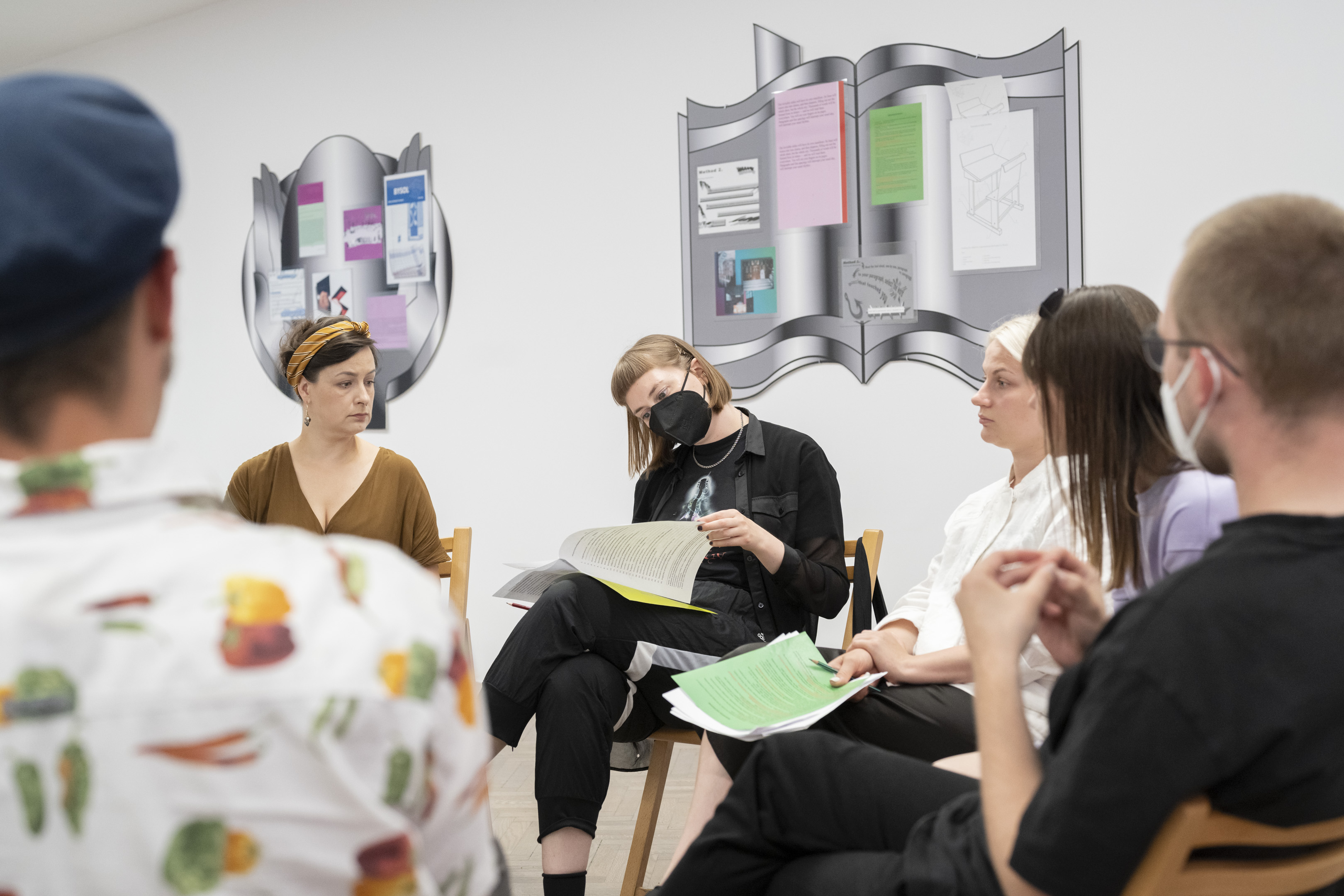Exhibition: Deschool!
DOC 234—34/2

Curator: Katarzyna Różniak
Photo: Tytus Szabelski
Photo: Tytus Szabelski
Conflicts at art schools in Central and Eastern Europe result, on the one hand, from their inherited feudal and patriarchal structures and, on the other hand, from the post-transformation offensive of neoliberal practices. Nowadays, these problems are additionally confronted with attempts by increasingly authoritarian governments to limit the autonomy of universities and academies. And so, more and more often, we face not only the question of whether it is worthwhile to defend hierarchical structures from commercialization but also, in the face of authoritarian tendencies of those in power, whether we are doomed to fight to maintain the status quo?
Are different institutions possible? And if not, what could alternative models of artistic education look like? In the introduction to the Polish edition of Ivan Illich’s De-Schooling Society, Piotr Laskowski asks: “is it possible to create a school that is not an institution but a community based on friendship? […] A community free from grades, exams, compulsory programs; a non-institutionalized community, non-hierarchical, free of paternalism, self-governed, open and inclusive, but at the same time a community whose participants take care of each other and pull each other towards reading and action?”
This exhibition presents artworks and practices that confront the problems of institutions, the revolts of academic communities, and initiatives that combat their pathologies. For six weeks, the Deschool! project will also be implementing alternative educational projects by artists and their self-study groups, grassroots collective practices of knowledge sharing, and community-based learning and creation.
Are different institutions possible? And if not, what could alternative models of artistic education look like? In the introduction to the Polish edition of Ivan Illich’s De-Schooling Society, Piotr Laskowski asks: “is it possible to create a school that is not an institution but a community based on friendship? […] A community free from grades, exams, compulsory programs; a non-institutionalized community, non-hierarchical, free of paternalism, self-governed, open and inclusive, but at the same time a community whose participants take care of each other and pull each other towards reading and action?”
This exhibition presents artworks and practices that confront the problems of institutions, the revolts of academic communities, and initiatives that combat their pathologies. For six weeks, the Deschool! project will also be implementing alternative educational projects by artists and their self-study groups, grassroots collective practices of knowledge sharing, and community-based learning and creation.





